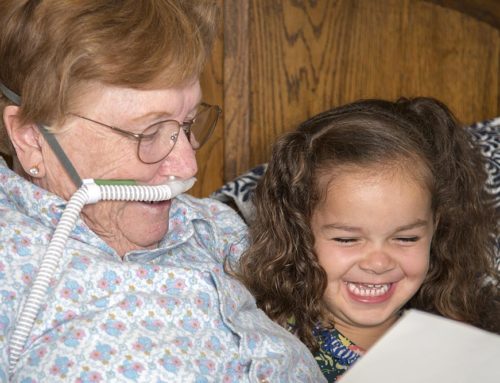An estimated 5.8 million Americans age 65 and older are living with Alzheimer’s in 2020 and it is the 6th leading cause of death in the US. Hospice can offer significant relief not only for those suffering with the illness, but also for caregivers, some of whom may not be aware that end of life care is available for Alzheimer’s.
Alzheimer’s patients often need more skilled care and attention than the average patient. Hospice providers can help deliver support grounded in specialist knowledge and expertise to help guide patients through this challenging time.
What are the symptoms of end-stage Alzheimer’s?
The symptoms of Alzheimer’s disease progress slowly over several years. Sometimes these symptoms are confused with other conditions and may initially be put down to old age. These include forgetting about recent conversations or events. misplace items.
Mid-stage Alzheimer’s is when the illness usually becomes significant and challenging. Increasing confusion/disorientation, wandering, delusions or feeling paranoid and suspicious and agitated can all herald the full emergence of Alzheimer’s.
At the late stage of Alzheimer’s, these symptoms become increasingly severe and other symptoms may also develop as the disease worsens, these include:
- Increased hallucinations and delusions
- Problems with eating and swallowing
- Mobility issues
- Weight loss
- Urinary incontinence or stools
- Speech issues
- significant problems with short and long-term memory
What is involved in hospice care for Alzheimer’s?
Hospice care is designed to make the patient comfortable and prepares them and their family for end of life when it’s decided curative treatment will no longer be pursued. It relies on hospice professionals, nurses and doctors and is offered at a place the patient feels most comfortable, which is often their own home.
Some of the things included in hospice care for Alzheimer’s:
- Pain relief and symptom management
- Coordination of care
- Emotional and spiritual support
- Respite care for family and other caregivers
- Bereavement care
Compassion and respect is at the core of hospice care for Alzheimers. Support is delivered in a way which reflects the patient and their families wishes as much as is possible.
What are the signs someone with Alzheimer’s is ready for hospice?
Alzheimer’s trajectory does not typically mirror that of other illnesses, however there are some ways that you can identify when it might be time for hospice.
In the last six months there have been:
- Two or more episodes of pneumonia or another serious infection
- Difficulty eating and swallowing resulting in weight loss of over 10 percent.
- One or more skin pressure ulcers that will not heal properly
Other problems that indicate hospice care may be needed include:
- Requiring help sitting up and walking
- Assistance with almost all daily activities, including self-care and bathing.
- Loss of facial expressions, including smiling
- Problems speaking or being understood
- Inability to recognize family/friends
- Incontinence
Will Medicare cover my Hospice Care for Alzheimer’s?
Under Medicare Part A guidelines, hospice eligibility must include the following three conditions:
- Your loved one’s physician/nurse or hospice physician must certify that your loved one is within the last six months of life.
- You accept palliative care for your loved one – which is care for their comfort, versus care to cure their illness.
- You choose hospice care for your loved one’s terminal illness, and sign a statement documenting your choice.
Get the Alzheimer’s Support You Need
The progression of Alzheimers is different from other illnesses and it can be difficult to determine when to seek hospice, but do not let this deter you. It is essential that your loved one and you receive the support you need at this time.
Our dedicated and knowledgeable team can help support you in the process of getting hospice care. To find out more, contact us today at 888-714-5893.
Alzheimer’s Hospice Resources:







Leave A Comment